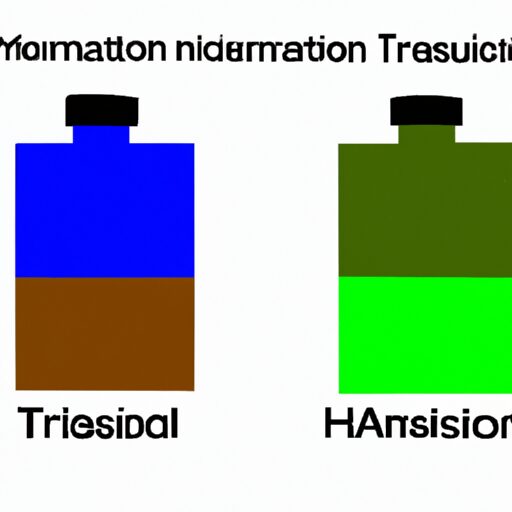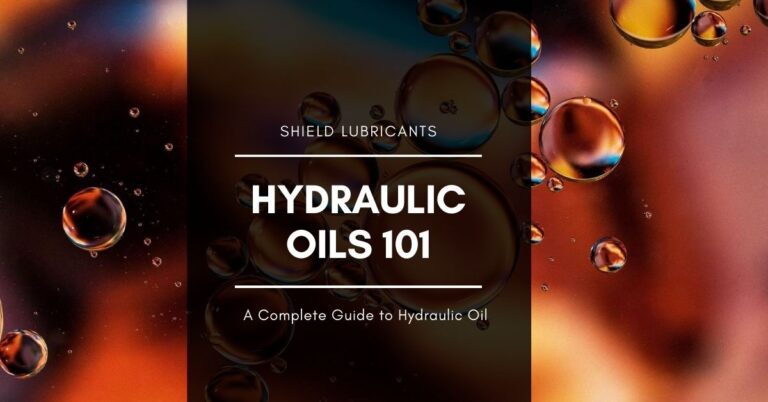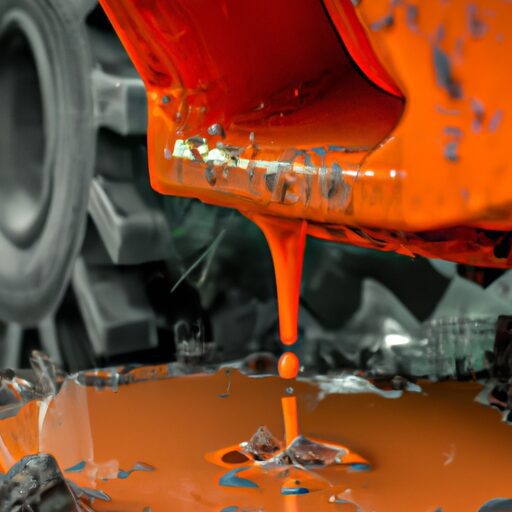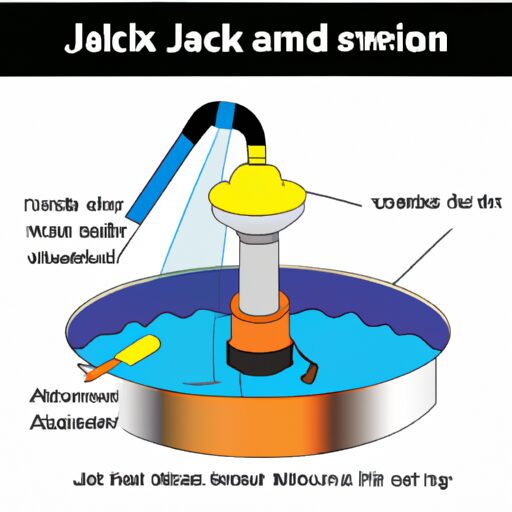Can Transmission Fluid Be Used As Hydraulic Fluid
Transmission fluid and hydraulic fluid are both vital components in different mechanical systems. While they share some similarities, such as their lubricating properties, it is important to understand that they serve distinct purposes and have different chemical compositions. This article aims to explore the question of whether transmission fluid can be used as hydraulic fluid, considering factors like compatibility and performance.
According to industry statistics, there is a pervasive misconception among some individuals that transmission fluid can be used interchangeably with hydraulic fluid. However, this assumption may lead to potential risks and issues in the functioning of hydraulic systems if not carefully evaluated. Therefore, it is crucial to examine the purpose and function of each type of fluid, as well as any potential incompatibilities or limitations that may arise from using transmission fluid in hydraulic systems.
By providing an objective analysis of these aspects and discussing alternative options available, this article seeks to assist readers in making informed decisions regarding their hydraulic systems.
Understanding the Differences Between Transmission Fluid and Hydraulic Fluid
Understanding the distinctions between transmission fluid and hydraulic fluid is essential in order to comprehend their respective applications and functionalities. While both fluids are used in automotive systems, they serve different purposes and possess distinct properties.
One of the main differences between transmission fluid and motor oil lies in their chemical composition. Transmission fluid is specifically formulated to meet the unique requirements of a transmission system, whereas motor oil is designed for lubricating engine components. Hydraulic fluid, on the other hand, is used to transmit power within hydraulic systems by generating pressure through a pump.
In terms of properties and characteristics, transmission fluid typically exhibits a higher viscosity than motor oil. This allows it to effectively transfer power from the engine to the wheels while also providing lubrication for various components within the transmission system. Hydraulic fluid, on the contrary, has lower viscosity in order to facilitate smooth operation of hydraulic machinery.
Furthermore, transmission fluid often contains additives that enhance its performance under high temperatures and pressures. These additives help prevent foaming, oxidation, and wear within the transmission system. In contrast, hydraulic fluids may contain anti-wear agents and corrosion inhibitors to protect hydraulic system components.
Understanding these differences between transmission fluid and hydraulic fluid enables mechanics and automotive enthusiasts to make informed choices when selecting fluids for their specific applications. Transitioning into the subsequent section about ‘the purpose and function of transmission fluid,’ it is important to delve deeper into how this specialized liquid contributes to optimal vehicle performance without compromising its durability or efficiency.
The Purpose and Function of Transmission Fluid
Surprisingly, the substance responsible for ensuring smooth gear shifts and preventing excessive friction within a vehicle’s transmission system serves a crucial purpose that extends beyond its conventional role. Transmission fluid, as the name implies, is specifically designed to lubricate and cool various components of the transmission, such as gears, bearings, and clutches. Its primary objective is to enable efficient power transfer from the engine to the wheels by creating a protective film that reduces friction and wear.
To better understand transmission fluid properties and composition, let us consider a table comparing some key characteristics:
| Transmission Fluid Properties | Composition |
|---|---|
| Viscosity | Synthetic or mineral oil base with additives |
| Friction Modifier | To enhance clutch engagement |
| Anti-wear Additives | To reduce component wear |
| Detergents | For cleaning internal surfaces |
| Oxidation Inhibitors | To prevent fluid breakdown |
These properties contribute to the overall performance of transmission fluid in maintaining optimal operation of the transmission system. Additionally, they ensure longevity by protecting against thermal degradation caused by high temperatures generated during operation.
Transitioning into the subsequent section about hydraulic fluid without abruptly ending this discussion on transmission fluid’s purpose and function, it is important to note that while both fluids serve different systems within a vehicle, they share similar principles in terms of lubrication and heat dissipation.
The Purpose and Function of Hydraulic Fluid
Hydraulic systems rely on a specialized substance to facilitate the transfer of force and movement, ensuring smooth operation and efficient power transmission. This substance is known as hydraulic fluid. Hydraulic fluid possesses specific properties that make it ideal for use in hydraulic systems. One important property is viscosity, which refers to the fluid’s resistance to flow. The appropriate viscosity level ensures that the fluid can effectively transmit pressure throughout the system while maintaining proper lubrication. Another key property is thermal stability, as hydraulic systems generate heat due to friction and mechanical energy conversion. Hydraulic fluids with good thermal stability can withstand high temperatures without significant degradation or loss of performance.
Proper selection of hydraulic fluid is crucial for maintaining the system’s optimal functioning and longevity. Using an unsuitable or incompatible fluid can lead to various issues such as reduced efficiency, increased wear and tear, and even system failure. It is essential to consider factors such as operating temperature range, compatibility with system materials, seal compatibility, and desired performance characteristics when choosing hydraulic fluids.
In the subsequent section about compatibility and performance of transmission fluid as hydraulic fluid…
Compatibility and Performance of Transmission Fluid as Hydraulic Fluid
Compatibility and performance of transmission fluid, when utilized in hydraulic systems, can be evaluated based on factors such as its ability to withstand high temperatures without degradation or loss of effectiveness, its compatibility with system materials and seals, and its desired performance characteristics. Compatibility concerns arise due to the different chemical compositions of transmission fluid and hydraulic fluid. While both fluids serve similar purposes, transmission fluid is specifically designed for lubricating gears in automotive transmissions whereas hydraulic fluid is formulated to provide power transfer within hydraulic systems. Consequently, using transmission fluid as a substitute for hydraulic fluid may result in reduced efficiency and potentially damage system components.
Performance comparison between transmission fluid and hydraulic fluid reveals notable differences. Transmission fluid typically contains friction modifiers that are absent in most hydraulic fluids. These modifiers are essential for smooth gear shifting but can cause issues when used in hydraulic systems where precise control over pressure and flow rate is required. Furthermore, the viscosity index of transmission fluid may not be suitable for certain applications that demand specific viscosities.
Transitioning into the subsequent section about potential risks and issues of using transmission fluid as hydraulic fluid, it is important to consider these compatibility concerns and performance disparities before making a decision regarding the substitution.
Potential Risks and Issues of Using Transmission Fluid as Hydraulic Fluid
One concerning statistic to consider is that the improper use of transmission fluid in hydraulic systems can lead to a decrease in efficiency and potential damage to system components. While transmission fluid may seem like a suitable substitute for hydraulic fluid due to their similar properties, there are several risks and issues associated with its use.
Firstly, transmission fluid is not specifically designed for hydraulic systems. It lacks the necessary additives and viscosity modifiers that hydraulic fluids possess. As a result, using transmission fluid can lead to inadequate lubrication, increased wear and tear on system components, and reduced overall performance.
Moreover, transmission fluid has different thermal characteristics compared to hydraulic fluids. Hydraulic systems often operate at higher temperatures than transmissions. Using transmission fluid in such systems can cause overheating, leading to accelerated degradation of the fluid and potential damage to seals and other critical parts.
Additionally, compatibility issues may arise when using transmission fluid as a substitute for hydraulic fluid. Different types of transmissions require specific formulations of fluids tailored for their unique needs. Utilizing the wrong type or brand of transmission fluid in a hydraulic system can result in chemical reactions that compromise its functionality.
Overall, while it may be tempting to use transmission fluid as a substitute for hydraulic fluid due to its availability and lower cost, doing so poses significant risks and issues that can compromise the performance and longevity of the system components. Therefore, exploring alternative options becomes crucial in maintaining optimal functioning without jeopardizing safety or efficiency.
Alternatives to Using Transmission Fluid as Hydraulic Fluid
An alternative to utilizing transmission fluid as a substitute for hydraulic fluid involves exploring other viable options that can effectively meet the lubrication and temperature requirements of hydraulic systems. There are several alternative fluids available in the market that offer distinct advantages and disadvantages.
One popular alternative is synthetic hydraulic fluid, which is specially formulated to provide enhanced lubrication properties and improved resistance to high temperatures. Synthetic fluids also have a longer lifespan compared to conventional transmission fluids, reducing the frequency of fluid changes and maintenance costs. However, they can be more expensive upfront.
Another option is biodegradable hydraulic fluids, which are environmentally friendly and do not pose a threat to aquatic life if spilled. These fluids are often derived from vegetable or renewable sources. However, their performance may vary depending on the specific application, and they may require more frequent replacement due to potential degradation over time.
Silicone-based hydraulic fluids offer excellent temperature stability over a wide range of operating conditions. They also possess good resistance to oxidation and aging. However, their low viscosity can lead to increased leakage in certain systems.
Ultimately, selecting the most suitable alternative fluid for your hydraulic system requires careful consideration of its specific requirements, cost-effectiveness, environmental impact, and performance characteristics. By making an informed decision based on these factors, you can ensure optimal functioning of your system while minimizing potential risks.
[transition sentence: In conclusion…]Conclusion: Making an Informed Decision for Your Hydraulic System
Despite the plethora of alternatives available, it is crucial to make a judicious and well-informed decision regarding the selection of a suitable fluid for your hydraulic system in order to ensure optimal performance and minimize potential risks. When weighing the pros and cons of using transmission fluid as hydraulic fluid, it becomes clear that there are significant drawbacks to this choice. While transmission fluid may seem like a convenient option due to its availability and similarities in properties with hydraulic fluids, experts recommend against using it.
One way to evaluate the suitability of different fluids for your hydraulic system is by considering their key characteristics. The table below outlines some important factors to consider when choosing a hydraulic fluid:
| Characteristic | Transmission Fluid | Hydraulic Fluid |
|---|---|---|
| Viscosity | Inconsistent | Consistent |
| Oxidation Stability | Poor | Excellent |
| Anti-wear Properties | Limited | Advanced |
| Water Resistance | Low | High |
| Compatibility with Seals | Variable | Optimal |
From this comparison, it is evident that transmission fluid falls short in terms of viscosity consistency, oxidation stability, anti-wear properties, water resistance, and compatibility with seals. These shortcomings can lead to reduced efficiency, increased wear on components, higher likelihood of system failure, and potential damage.
Considering expert recommendations and the substantial differences between transmission fluid and dedicated hydraulic fluids in terms of performance characteristics, it is advised to use a proper hydraulic fluid recommended by manufacturers for optimum operation and longevity of your hydraulic system.
Frequently Asked Questions
Can I use transmission fluid in a hydraulic system if I don’t have access to hydraulic fluid?
Using transmission fluid as a substitute for hydraulic fluid in a hydraulic system, due to unavailability, poses potential risks and compatibility concerns. It is crucial to consider that these fluids have different properties and purposes, which may affect the system’s performance and longevity.
What are the potential consequences of using transmission fluid instead of hydraulic fluid?
Using transmission fluid instead of hydraulic fluid in a hydraulic system may have potential risks and long-term effects. These include reduced performance, increased wear and tear on components, decreased lubrication properties, and potential damage to the system.
How does the performance of transmission fluid compare to hydraulic fluid in terms of temperature and pressure?
The performance comparison between transmission fluid and hydraulic fluid reveals differences in temperature and pressure sensitivity. Transmission fluid may exhibit varying effects under extreme conditions, while hydraulic fluid is designed to withstand high temperatures and pressures with minimal degradation.
Are there any specific types or brands of transmission fluid that are more suitable for use as hydraulic fluid?
Specific types and suitable brands of transmission fluid for use as hydraulic fluid depend on the specific application requirements, such as temperature range, viscosity, and additive package. It is essential to consult the equipment manufacturer or a fluid specialist for guidance in selecting the appropriate product.
Can using transmission fluid in a hydraulic system void any warranties or damage the equipment?
Using transmission fluid in a hydraulic system may potentially void warranties and lead to equipment damage. Warranty concerns arise due to the use of non-approved fluids, while equipment damage can occur as transmission fluid lacks the necessary properties for optimal hydraulic performance.
Conclusion
In conclusion, it is not recommended to use transmission fluid as hydraulic fluid due to their significant differences in composition and performance. While both fluids serve the purpose of lubricating and cooling, their specific formulations are tailored for different systems. Using transmission fluid in a hydraulic system can lead to compatibility issues, reduced efficiency, and potential damage to the components. It is crucial to choose the appropriate fluid for your hydraulic system to ensure optimal performance and longevity. Therefore, it is imperative to make an informed decision based on the specific requirements of your hydraulic system.
Additionally, one must consider alternative options that are specifically designed for hydraulic systems. Relying on compatible hydraulic fluids will mitigate any risks associated with using incorrect fluids. By choosing the right fluid, you can ensure smooth operation and maintain the reliability of your hydraulic system over time.
In light of these considerations, we must ask ourselves: Can we afford to compromise the efficiency and durability of our valuable hydraulic systems by using improper fluids? The answer lies in making educated choices that prioritize longevity and optimal performance for our equipment.







